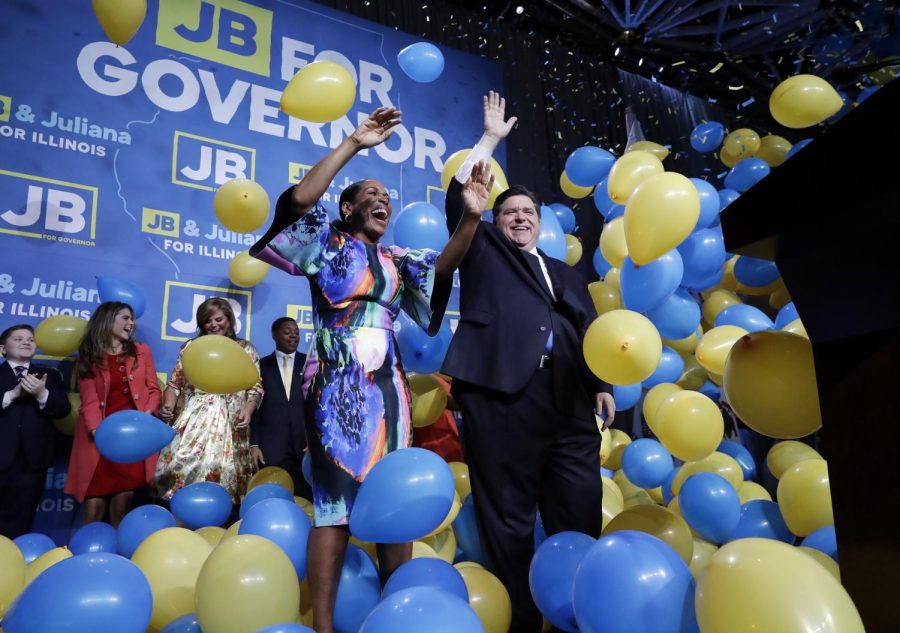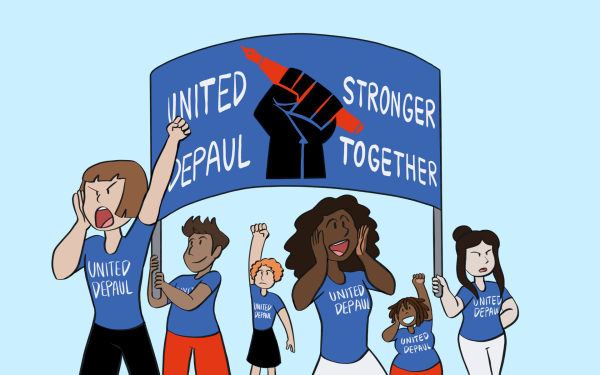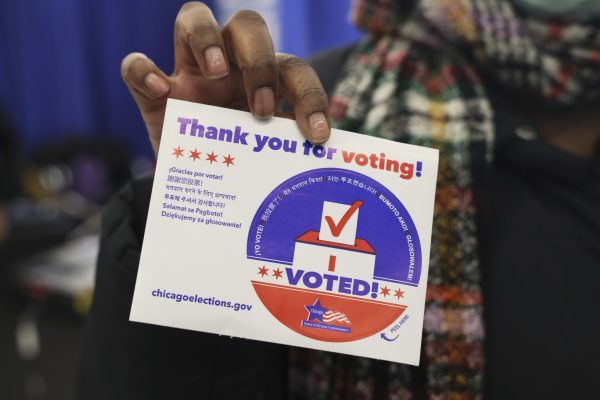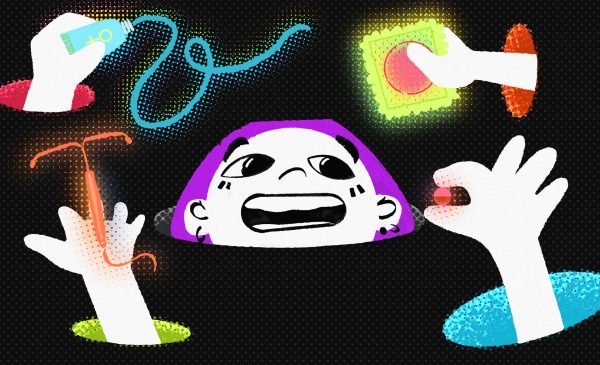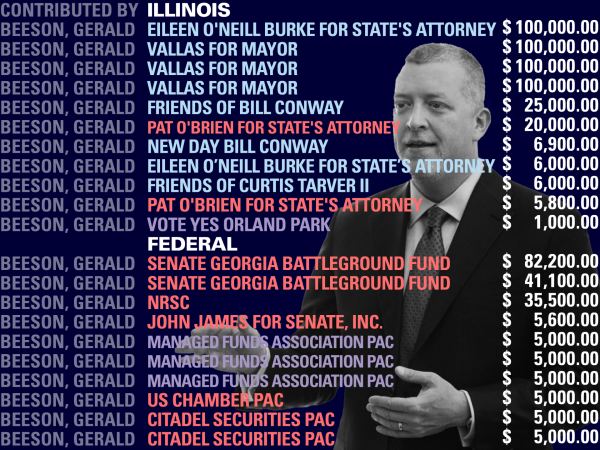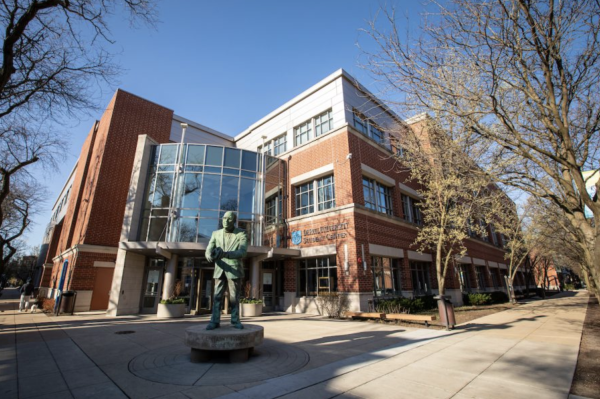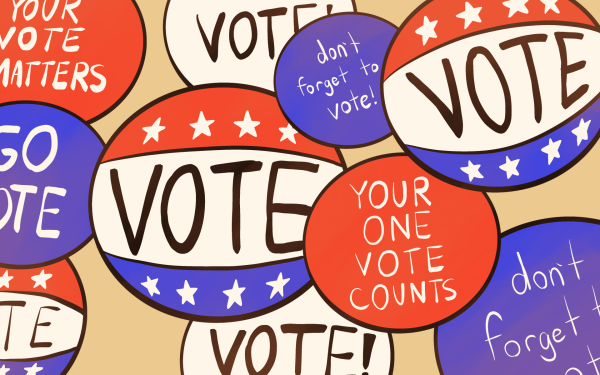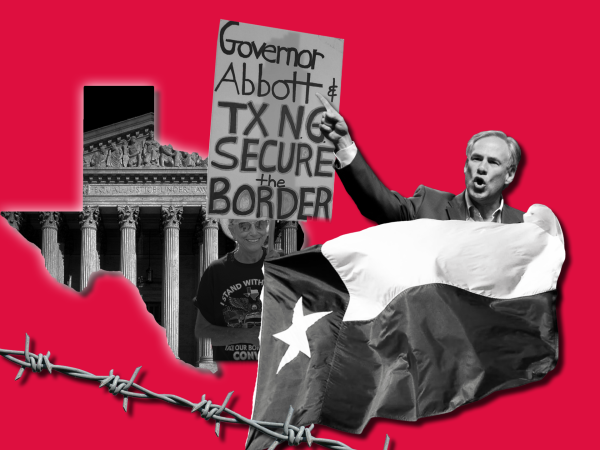Pritzker wins battle of the bank accounts in Illinois
Democrat J.B. Pritzker rode a green wave of record-breaking spending as he seized the Illinois governor’s office from Republican incumbent Gov. Bruce Rauner in a midterm election that generated unusually high turnout. Pritzker, the billionaire heir to the Hyatt Hotel fortune, won easily after pouring more than $170 million of his own money into the race.
Pritzker’s funding for his gubernatorial campaign surpasses that of Donald Trump’s 2016 Presidential campaign, where President Trump supplied $66 million of his own money, according to a report by Fortune.
Pritzker spearheaded a widespread campaign, with visual advertisements covering the city and digital promotions on platforms like Spotify, Hulu and Youtube. In addition to being the new governor-elect for Illinois, Pritzker is the country’s richest politician, with an estimated net worth of $3.2 billion, according to a report by Time.
Rauner also spent heavily in his failed bid for a second term, contributing more than $70 million in the most expensive governor’s race in the nation’s history. In all, the two candidates raised more than $255 million, exceeding the previous record set in California, a state with five times the population of Illinois.
In a concession speech at the Drake Hotel in Chicago, Rauner wished Pritzker, “Godspeed.” He called for unity, telling his supporters, “Now we stand not as Democrats or Republicans, but as people of Illinois. I call on my friends in the Democratic Party: Let us work together.” The Rauner concession drew cheers at Pritzker’s election night party at the Marriott Marquis hotel in Chicago’s South Loop. The evening’s first speaker, re-elected state Treasurer Mike Frerichs rallied the crowd, saying the past four years felt “like being at war.”
Pritzker secured most of his votes in Cook County, where he received 1,208,380 votes to Rauner’s 414,373. Rauner carried most of the downstate counties.
The final vote tally saw Pritzker winning 54.2 percent of the vote compared to Rauner’s 39.2 percent. Conservative third-party candidate Sam McCann recorded 4.3 percent of the vote and Libertarian Kash Jackson brought home the remaining 2.4 percent.
“I think Rauner lost the Latino vote this time because of his comments about immigrants,” said Pritzker supporter Pedro Aguilera. “We couldn’t afford to have a governor who will follow President Trump’s position towards immigrants.”
Rauner’s popularity has been on a steady decline since taking office in 2015. In a 2018 report by Morning Consult, Rauner was found to have a disapproval rating of 60 percent, with an approval rating of only 27 percent. Rauner’s low approval rating made him the then-third lowest approved governor in the country, preceded by Governor Mary Fallin of Oklahoma and Governor Dan Malloy of Connecticut.
Much of Pritzker’s campaign seemed catered towards attracting younger demographics, with advertisements focusing on the legalization of marijuana, protecting reproductive rights for women, and reforming higher education.
Pritzker campaign volunteer and Edgewater resident Barbara Banach was excited about the election. “People in Illinois are going to support Pritzker because they’ve been waiting for a change for a long time,” she said.
“People in Illinois are going to support Pritzker because they’ve been waiting for a change for a long time.”
— Barbara Banach, J.B. Pritzker campaign volunteer
“J.B.! J.B.! J.B.!,” shouted Pritzker supporters at the Grand Horizon Ballroom Hall of the Marriott Marquis in Chicago, after learning about reports about Bruce Rauner calling Pritzker the new governor of Illinois.
The governor-elect took the stage after 9 p.m. with his family and the lieutenant governor-elect Juliana Stratton.
She promised to support to immigrants, women, farmers, communities of color, LGTBQ communities and veterans.
“My heart is with the veterans who bravely protected us, and now depend on us to protect them when they’re ill,” Stratton said. “We not only heard you, we see you. You will not be forgotten and elevate your hopes for a better tomorrow will motivate us every single day.”
Pritzker reiterated promises of his campaign once elected, promising to grow jobs in Illinois and advance the economy of the state.
“We will grow the diversity of our economy by growing jobs across Illinois, especially in communities that have been left behind,” Pritzker said in his victory speech.
He promised to fight for equal pay, protect Illinoisan families while supporting immigrants and labor unions.
“We will strive for the highest graduation rate in the nation. We can become the biggest home of entrepreneurs between the coasts,” Pritzker said, who also promised his administration will grow jobs across Illinois, “especially for communities that has been left out and left behind, because none of us success unless we fight for all of us to succeed.”
In addition, the governor-elect said he would fight for a fair tax system.
“We will be a leading protector of workers’ rights, and civil rights, and human rights in the nation,” Pritzker said.
Organized labor played a considerable role during the evening’s proceedings. Many of the evening’s speakers, including Comptroller Susana Mendoza and Secretary of State Jesse White both thanked organized labor for its support. Sen. Dick Durbin went as far to say that Rauner hates organized labor “more than the devil hates holy water.
This marks a stark departure from the Rauner era, which included political fights with many of the state’s unions. David DuVall, president of the Dalton firefighters Local 3766 said the election shows “the middle class voted with their paychecks” and against the right-to-work policies of Rauner.


